KONG v.,
v. tr. To say, utter aloud
HEY n. prawn
UAR n.(Oo-wa) word
Ok. This is another ridiculous term. The use of this phrase is widespread and rife among disgruntled people eg. government workers, and it also describes our general feeling towards the proposed date of completion of Kuching new airport.
This phrase is commonly directed at higher members of the society (or TUA LIAP HOOT, another day for this term), police, school principals and perhaps, our bosses. But more frequently, this phrase can be overheard at kopi thiams and secret meetings.
Kong Hey Uar simply means 'talk shit'. But literally it means, 'prawn conversation'. How did anyone ever coin such term? Genius, I say. Let me offer you my version of the creation of this useful phrase.
Ah Meng went out fishing one day. He walked right up to the mid-point of the Satok Suspension Bridge (this was before it became famous, before the Ngap Sayot days or the 'collapsed' - actually this is a conspiracy, it was too expensive to maintain, easier to bring the bridge down, ever wonder why the bridge collapsed when most of us still in bed?).
As he lowered his fishing line, he heard some mumblings. "No way", he said. His eyes lit up. They were ripples on the surface of the water, and there were easily 20 to 30 small prawns visible from where Ah Meng stood. The mumblings came from the prawns.
Prawn 1 said to Prawn 2,"Lantui! What a cold morning, I am starving and there is nothing nice here."
Prawn 2 replied,"Don't lantui me! Just be patient, there will be food soon."
Prawn 1 mumbled on,"I want to lantui when I want to lantui. Lantui! How dare you tell me when to stop saying Lantui!"
Prawn 2 now perplexed,"What is lantui anyway?"
Mother of prawn 1 gave Prawn 1 a good kick. PIANG!! Mother said,"Don't you ever say that word again!"
Prawn 1 said,"It is not a bad word. CCB more worse." PIANG! Another kick from Mother. Mother had enough of this nonsense.
Mother said "You don't tell me!"
Back to Ah Meng, he was so excited. He never heard prawns speak before. Amazing. So he went back and tell EVERYONE what he heard.
That was how the term came about. Suffice to say, he is now taking anti-pychotic pills.
So next time, when you hear a story like this, you just say "KONG HEY UAR"!
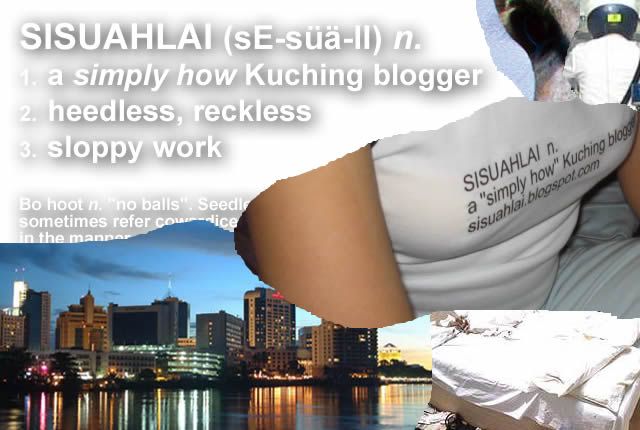
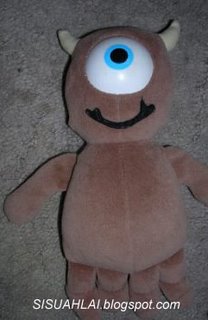





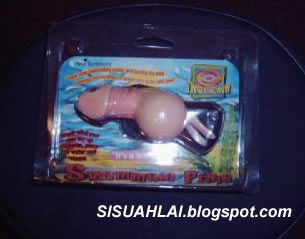







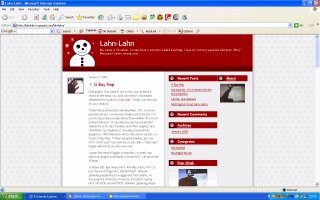









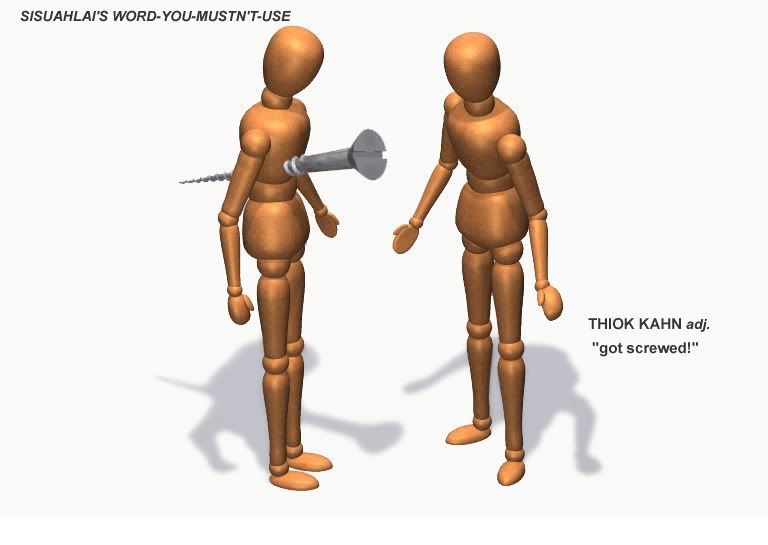
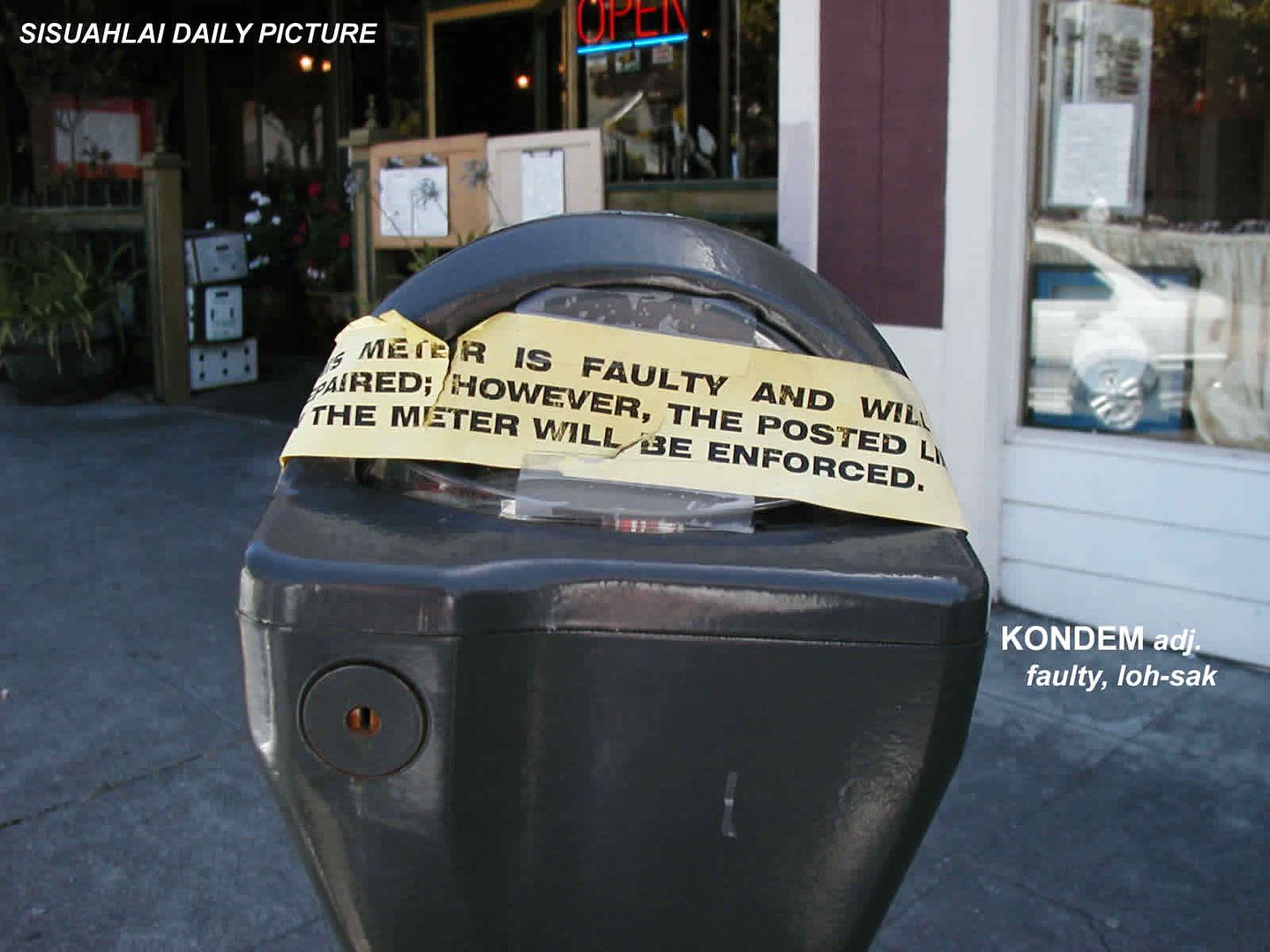 Your Chance to be (in)Famous!
If you want your photo (or any picture) to feature on Sisuahlai, please send it to
Your Chance to be (in)Famous!
If you want your photo (or any picture) to feature on Sisuahlai, please send it to